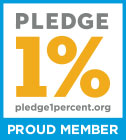Q&A with Motie Bring at PPRO
 As the world continues to move towards a more digital and cashless future, the payments industry has become increasingly complex. One major challenge for global players has been the need to support hundreds of Local Payment Methods (LPMs) to ensure customers can pay using their preferred payment method, which is critical for reducing cart abandonment rates. Examples of LPMs include digital wallets, Buy Now Pay Later (BNPL) and real-time payment methods. This is an issue not just for large multinational merchants, but also for the payment service providers that support them.
As the world continues to move towards a more digital and cashless future, the payments industry has become increasingly complex. One major challenge for global players has been the need to support hundreds of Local Payment Methods (LPMs) to ensure customers can pay using their preferred payment method, which is critical for reducing cart abandonment rates. Examples of LPMs include digital wallets, Buy Now Pay Later (BNPL) and real-time payment methods. This is an issue not just for large multinational merchants, but also for the payment service providers that support them.
At the recent Seamless Asia conference in Singapore, Mangala Martinus, Managing Director of Payments Consulting Network (PCN), and Vivek Deshpande, Managing Partner, PCN Hong Kong had the opportunity to sit down with Motie Bring, the Chief Commercial Officer of PPRO, a global provider of digital payments infrastructure. With over 20 years of experience in the payments industry, Motie shared his insights on the current state of the market, the challenges and opportunities facing businesses, and PPRO’s role in facilitating global commerce. In this article, we’ll dive deeper into our conversation with Motie and explore some of the key takeaways from our discussion.
1. Please provide a high-level overview of your business. What are the main services you offer?
To expand into new markets and navigate an increasingly complex payments ecosystem, online businesses need to offer a seamless digital payment experience, underpinned by a strategy that is scalable and offers flexibility, localisation, and security.
PPRO provides digital payments to businesses and banks so that they can scale their checkout, acquiring, and risk services through one connection. Our customers, the likes of Citi, PayPal, and Stripe partner with PPRO to boost conversions and eliminate the complexities of digital payments.
We are the leading provider of digital payment methods which globalise payment platforms for businesses, allowing them to offer more choice at the checkout and boost cross-border sales.
Simply put, payment service providers (PSPs), businesses and banks that run on PPRO’s platform are able to launch payment methods faster, optimise checkout conversions, and reduce the complexity of payments.
In terms of our footprint, we have a growing global team of over 500 payment experts, based across 11 offices. In Asia Pacific, PPRO has two offices: one in Singapore and one in Melbourne.
2. What are the biggest trends you are seeing in payments and e-commerce in Asia right now?
Local modes of payments are on the rise, this means that there is a need to simplify the way businesses process payments globally, while catering to the needs of local markets. In such a consumer-led industry, there are many digital payment methods, and their prevalence continues to grow. At the same time, each country in Asia has its own preferred payment methods so there is a greater need among PSPs and merchants to integrate more local payment methods onto their platforms. This is true not just for Asia, we see the same trend in other continents from Latam to Europe.
There are two areas I am very excited about.
First – the exponential rise of India’s UPI as a payment method is one of the most exciting developments in Asia’s payments landscape.
India is a market that was previously difficult to penetrate, given the various laws, regulations, and requirements to have a local entity in India to be able to process payments. PPRO’s partnership with NPCI International is a game-changer for PSPs and their merchants. By connecting directly to UPI via PPRO’s digital payments infrastructure, international PSPs enable merchants to tap into India’s huge online consumer base easily and securely, without the need for setting up a legal entity in India or settlement to an India-based bank. For consumers, this means they can seamlessly make cross-border purchases in Indian Rupees using their favourite payment method.
Second – Blockchain and the use of biometrics in authorising payments are two of the technological trends that we expect to see grow within the payments ecosystem and will help to redefine the way payments work, making payments faster and greener. These are evolving quite quickly at the moment, and the impact will be seen in the next few years.
3. How is PPRO adapting to these trends? What new solutions or capabilities are you focusing on developing?
One of the most significant capabilities we have developed pertains to the partnership with UPI which I alluded to previously. PPRO recently signed a strategic agreement with NPCI International (NIPL) to offer global partners access to UPI, India’s fastest-growing, real-time payment system, for cross-border transactions. This agreement, supported by a new framework co-developed with NIPL, paves the way for the first merchants to go live in the coming months.
UPI is India’s most popular instant payment system and already processes 60% of all domestic payments. In May 2023 alone, UPI processed over 9.4 billion transactions, the highest since its launch.
Globalisation has made international payments increasingly crucial, emphasizing the significance of financial inclusion for both individual customers and merchants.
Connecting PSPs and merchants worldwide to India’s UPI enables more Indian consumers to make purchases outside of India using UPI.
As the trend of cross-border payments becomes more seamless, retail markets will become more interconnected, fostering economic growth across countries.
4. Cross-border payments and e-commerce within Asia are growing rapidly. What difficulties do you see merchants facing, and how is PPRO addressing those challenges?
When merchants look to expand into new markets, they may encounter challenges in understanding and providing the preferred local payment methods in those markets.
We acknowledge and understand the difficulties that merchants may encounter in managing different technologies. To address this, we stay ahead of payment trends in each market and offer the latest and most comprehensive services to alleviate these challenges.
We also have experts located across financial hubs in the APAC region such as Singapore, China and Australia, to provide in-market expertise to partners looking to expand and accelerate their portfolio of digital payment methods.
5. What are some of the key considerations for merchants looking to expand across multiple markets in Asia? What advice would you give them?
Merchants need to understand the intricacies of different markets in terms of local rules and regulations as well as being open to accepting new and emerging payment methods.
To be successful globally, it’s important to build an agile strategy that evolves and adapts to the different trends in each market.
6. What is PPRO doing to build trust with merchants and consumers in the payments process? Security and fraud prevention are always major concerns.
Three key aspects: i) PPRO’s deep market knowledge, ii) regional experts, and iii) round-the-clock support means partners can have peace of mind knowing that their customers’ payments are being handled transparently.
And another important point is that PPRO works with its partners and their customers, the merchants, to ensure the highest standards of compliance and fraud prevention across the value chain. We enable and secure billions of global transactions each year, while mitigating against the risk of fraud.
7. Where do you see the greatest opportunities for growth and innovation in payments over the next 3 to 5 years? What new technologies are you most excited about?
As I mentioned, we have seen the use of blockchain technology rise over the last few years and we’re just seeing the start of how it will impact payments. However, there are still many unknowns in terms of what will happen in the near term. From a technology standpoint, we could see blockchain redefining how we process payments.
Security and biometrics are also creating seamless experiences for consumers – these are being tested by many businesses now and could end up having a huge impact on payments in the next two to three years. Especially in countries where younger generations are more relaxed about sharing data, collecting information such as biometric scans will be a way businesses can leverage this emerging technology in the future.
8. As Chief Commercial Officer, what are your priorities and key focus areas for driving PPRO’s growth?
I’m responsible for advancing the company’s commercial strategy, guiding the global business development teams, and overseeing PPRO’s Sales and Marketing departments.
My focus is to ensure my teams are providing our partners with access to the right digital payment methods that their merchants need to expand into new markets without any friction. My mission is to strengthen PPRO’s market position as the most trusted digital payments partner for payments service providers, merchants, and banks.
9. What advice would you give to a startup entering the payments and e-commerce space today?
My advice is simple. Stick to the basics.
Keep up to date with payments trends in your respective markets, know your customers and the payment preferences of your customers’ consumers.
And finally, understand why certain payment methods are more popular in certain countries and the innovation they bring to consumers.
***
About the authors:
Mangala Martinus, Managing Director, Sydney, Payments Consulting Network.
Mangala has over 30 years experience in the financial services and payments industries. He focuses on supporting clients with business strategy, payments optimisation, market expansion, and industry round tables. His clients include major financial institutions, retailers, e-commerce marketplaces, not-for-profits, ATM deployers, card schemes, and payment processors.
Vivek Deshpande, Managing Partner, Hong Kong, Payments Consulting Network.
Vivek is a leading Sales and Client Experience industry expert based in Hong Kong with 25 years of leadership experience in diverse industries including Banking, Consumer Products, and Technology. In his last role, Vivek was Managing Director and Regional Head of Sales, APAC at HSBC for its Global Payments & Cash Management business. He possesses extensive international experience having been based in Hong Kong, India, and Thailand in leading regional roles with significant exposure to APAC markets.
***
Mangala Martinus was a panel moderator and panelist at Seamless Asia 2023 and shared insights on “Digital wallets and super-apps: Changing the Asia Payments Game”, “Optimising payments to drive revenue” and “Breaking Borders: Exploring Strategies for Localising Payments and Boosting Cross-border Commerce”.
Vivek Deshpande was a panel moderator at Seamless Asia 2023, presenting insights on “Driving Financial Inclusion in Asia Through Payments.”
Motie Bring was one of the Keynote Speakers at Seamless Asia 2023 and shared some powerful insights in his talk on “Shaping your payment strategy to ensure cross-border success”.
Seamless Asia 2023 is a premier event that brings together payments, banking, and e-commerce industries.
***
If you found this article helpful and would like to read similar articles, please subscribe to our newsletter.
To get notified of our latest posts, follow the Payments Consulting Network company LinkedIn page and click on the bell icon at the top right section of our company profile.




